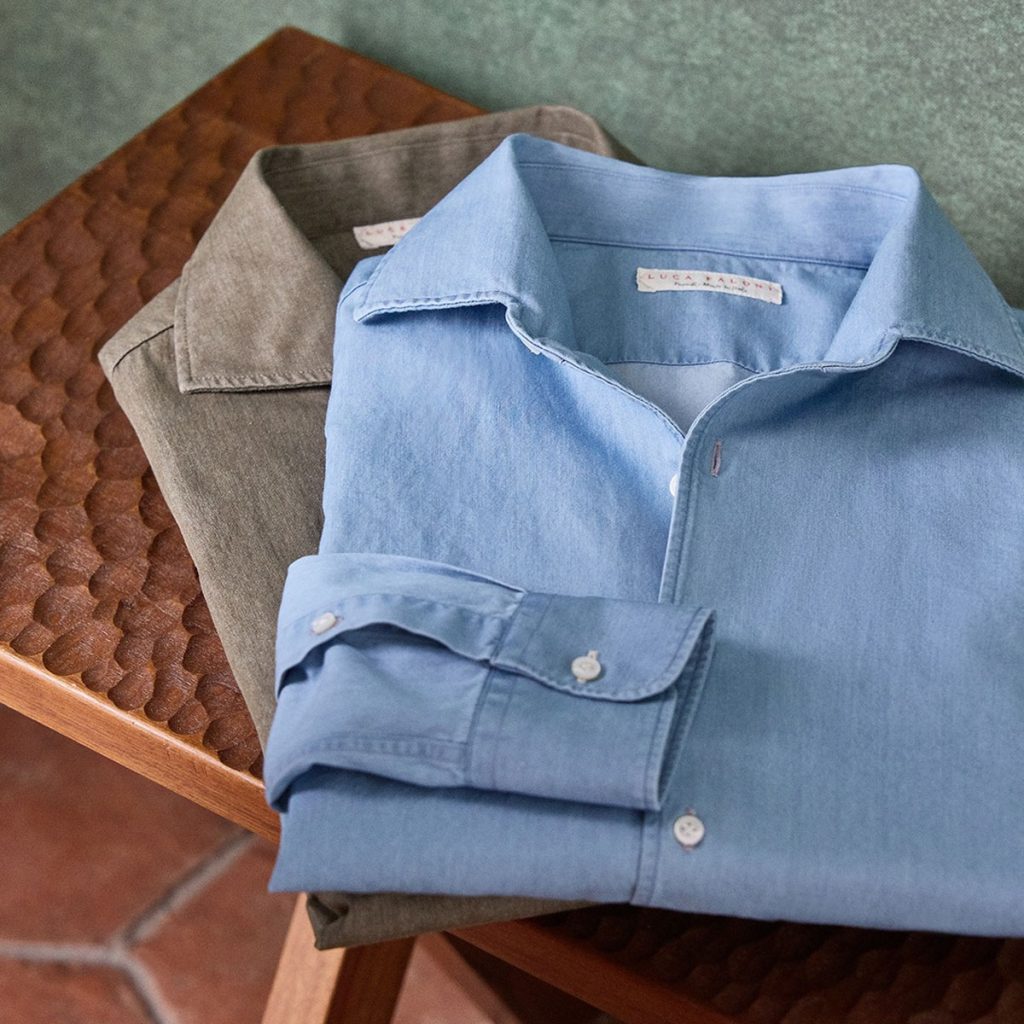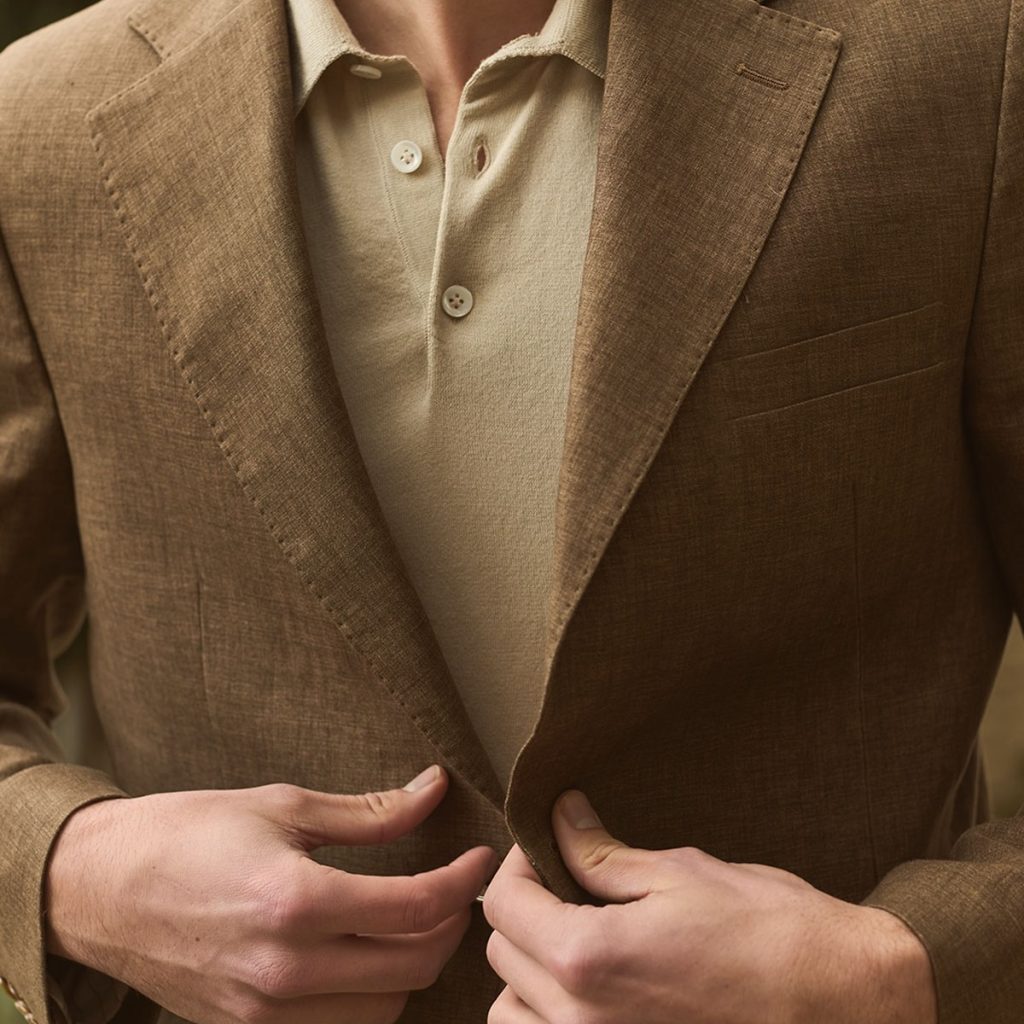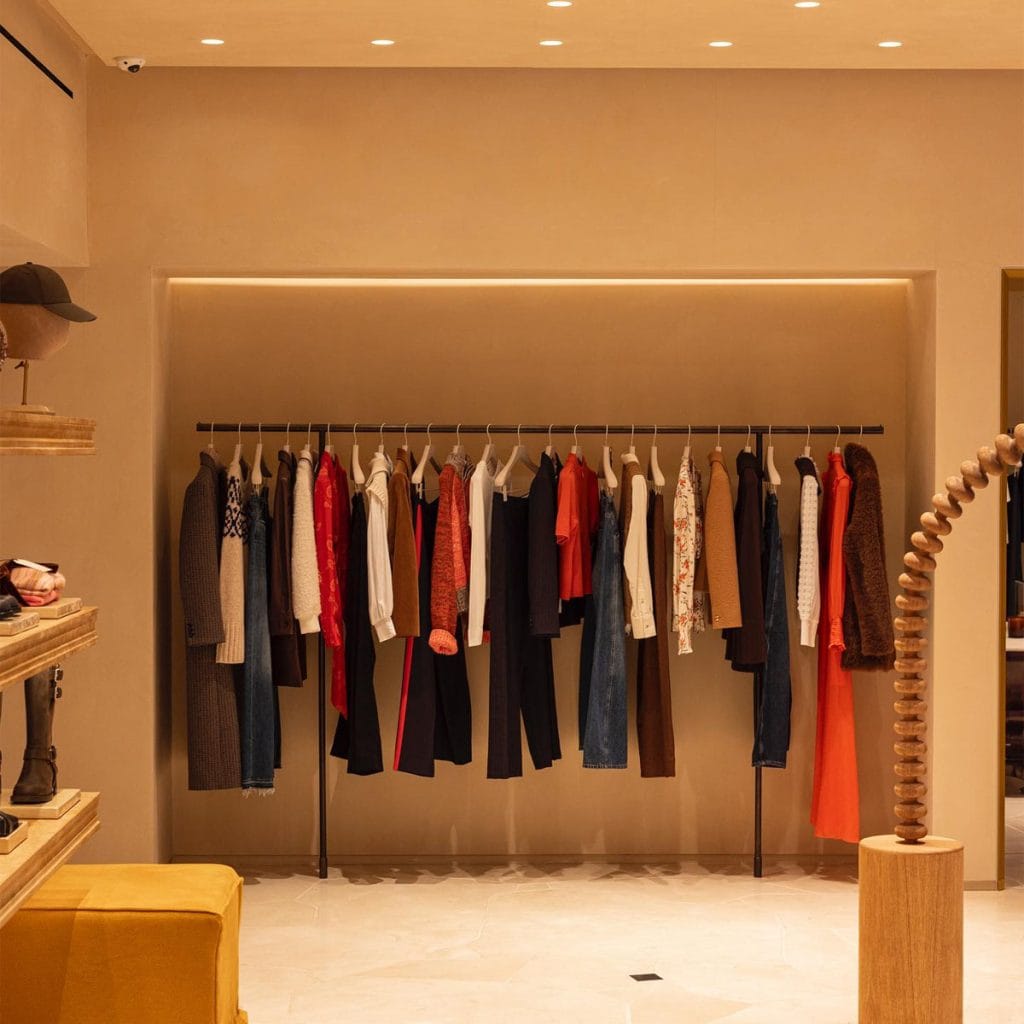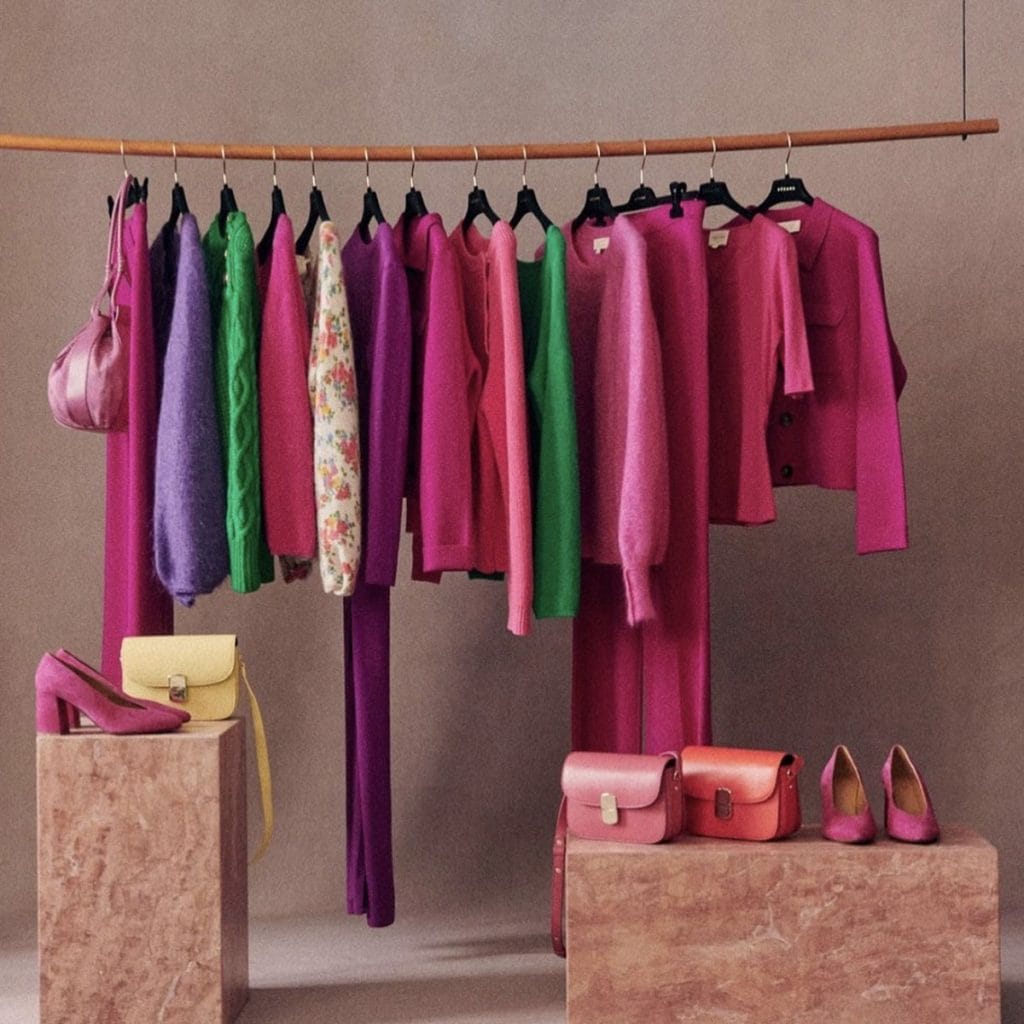Morning light falls across Marylebone High Street, picking out Georgian brickwork and polished brass shopfronts. The traffic here runs at conversation pace, a deliberate contrast to Oxford Street just five minutes south. Locals speak of the village’s “edited” character. In this place, bakeries list the provenance of their flour and wine shops stock only the growers they have visited. When Luca Faloni opened at number 108, the neighbourhood barely raised an eyebrow. Quality, after all, was expected. What surprised residents was how seamlessly an Italian label could feel native. The shop’s walnut shelves, linen-lined drawers and espresso invites created the sense of a well-lived drawing room rather than a new arrival. Within weeks, weekend queues formed for its cashmere hoodies and linen shirts, confirming that Marylebone had gained a flagship perfectly aligned with its quiet code of elegance.
A Founder’s Mission to Rescue Authenticity
Luca Faloni grew up in Turin, where each street still supports a single-specialist artisan. Shirts from one doorway, shoes from another, leather belts from a third. Moving abroad, he noticed that many Italian brands were outsourcing production, eroding both quality and the livelihoods of family workshops. In 2014, he answered that decline with a direct-to-client model run from his living room desk. By selling only online and in brand-owned stores, he could fund superior fabrics and pay workshops fairly while charging a transparent price. Early pop-ups in San Francisco and London validated the idea; the 2018 Marylebone trial was the tipping point, proving that global customers wanted Italian craft without a parade of third-party mark-ups.
Fabric First, Logo Last
Faloni’s catalogue is deliberately narrow. Cashmere knitwear arrives from Cariaggi Fine Yarns, spun two-ply for strength. Linen shirts use Albini cloth woven in Bergamo from Normandy flax, softening with every wash yet tough enough for decades. Three grades of Egyptian cotton serve distinct roles: brushed for winter shirts, piqué for polos, and doppio ritorto Oxford for year-round business casual. Each material carries traceable certification, from Oeko-Tex dyes to “TF Traceability & Fashion” supply-chain audits. Construction follows suit. The one-piece Paramontura collar, giglio seam stitching, and Australian mother-of-pearl buttons add labour hours invisible to the casual eye but felt by the wearer each morning.
Fun Fact: The shop’s collars stand perfectly without bones thanks to a single curved pattern piece that takes twice as long to sew as a standard collar.
Slow Fashion in Action
Where high-street calendars flip every six weeks, Faloni keeps a permanent collection and never holds a seasonal sale. Prices stay constant, signalling that garments hold enduring value. Designs lean on Italian pastel shades and classic silhouettes that worked a decade ago and will work in twenty years. Sustainability follows substance. Linen requires significantly less water than cotton. Cariaggi’s cashmere goats graze freely in Mongolia. All partner mills operate on certified renewable energy. By eliminating wholesale mark-ups, the brand funds these choices while keeping totals below traditional luxury.
The Marylebone Flagship as a Living Room
From Pop-Up to Permanent Home
A three-month pop-up at 107–108 High Street drew such steady footfall that Faloni signed a ten-year lease in April 2019. The 1,700-square-foot space is now the company’s global blueprint, guiding store fits in New York and Stockholm.
Design That Speaks Two Languages
Turin architects PlaC lined walls with Canaletto walnut and Arabescato marble, echoing Italian modernism. For the London character, they added aqua-green glazed tiles and mirrored panels reminiscent of Victorian pubs and Piccadilly Line stations. The result feels both continental and unmistakably local. A mezzanine holds extra fitting rooms and a tailoring counter where sleeves are shortened while you wait.
Retail as Hospitality
Weekends bring a complimentary aperitivo hour. Clients nurse a Negroni, browse new linen colours and trade travel tips with staff. Occasional jazz trios turn the lounge into a micro-piazza. The founder attends whenever he can, greeting regulars by name. Shopping becomes a social exchange, reinforcing brand loyalty without the hard sell.


The Conscious Connoisseur
Marylebone clients are lawyers, architects and film producers who value fabric handle over visible labels. Celebrity regulars include Cillian Murphy and Eddie Redmayne, men known for an unforced style. Reviews online run forensic, praising cardigan stitch tension or querying pilling after three winters. Such scrutiny would rattle a marketing-driven brand but fits Faloni’s remit: educate, improve, repeat.
In Good Company on the High Street
| Brand | Philosophy | Hero Item | Origin |
| Luca Faloni | Italian craft, slow fashion, direct-to-client | Linen shirt | Italy |
| Sunspel | Modern everyday luxury, fabric innovation | Riviera polo | UK |
| Slowear | Curated makers, durability | Incotex trouser | Italy |
| Fursac | Modern Parisian tailoring | Contemporary suit | France |
Faloni offers the single-label focus missing from multi-brand Slowear while matching Sunspel’s direct dialogue with buyers. Its relaxed Riviera aesthetic contrasts Fursac’s structured Parisian look, giving Marylebone a broader vocabulary of men’s style.
Closing Reflection
Marylebone rewards patience and provenance. Luca Faloni Marylebone thrives by meeting that brief with Italian honesty and London polish. Cashmere remains soft after countless wears, linen relaxes to the owner’s shape and prices never tumble in end-of-season scrambles. In the words of an old Piedmont proverb, “The good blade keeps its edge,” a reminder that true quality, once forged, stands time’s tests.



